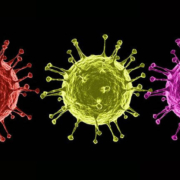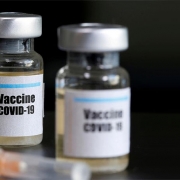Predicting ‘Long COVID’ At Initial Point of COVID-19 Diagnosis
An ISB-led study has identified several factors that can predict if a patient is likely to develop long COVID. In this video, three of the paper’s authors – Dr. Jim Heath, Dr. Yapeng Su and Daniel Chen – discuss some of the implications of their work.
A significant portion of people who contract the SARS-CoV-2 virus – some estimates suggest more than 40 percent – suffer chronic effects known as Post Acute Sequelae of COVID-19 (PASC), commonly referred to as long COVID. PASC symptoms include fatigue, brain fog, the loss of taste and smell, shortness of breath, and more.
Now, researchers have identified several factors that can be measured at the initial point of COVID-19 diagnosis that anticipate if a patient is likely to develop long COVID. These “PASC factors” are the presence of certain autoantibodies, pre-existing Type 2 diabetes, SARS-CoV-2 RNA levels in the blood, and Epstein-Barr virus DNA levels in blood.
Additionally, researchers found that mild cases of COVID-19, not just severe cases, are associated with long COVID. They also suggest that administering antivirals very early in the disease course may potentially prevent some PASC.
“Long COVID is causing significant morbidity in survivors of COVID-19, yet the pathobiology is poorly understood,” said Dr. Jason Goldman, co-corresponding author of the paper and an infectious disease expert at Swedish. “Our study pairs clinical data and patient-reported outcomes with deep multi-omic analyses to unravel important biological associations that occur in patients with PASC. Certain findings such as the low cortisol state in patients with long COVID have potential to translate rapidly to the clinic. Our results form an important foundation for the development of therapeutics to treat long COVID.”
Published research paper in Cell.
Release date: 25 January 2022
Source: Institute for Systems Biology









